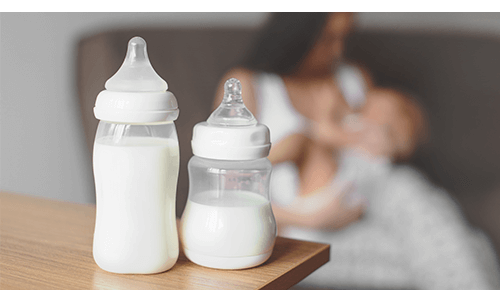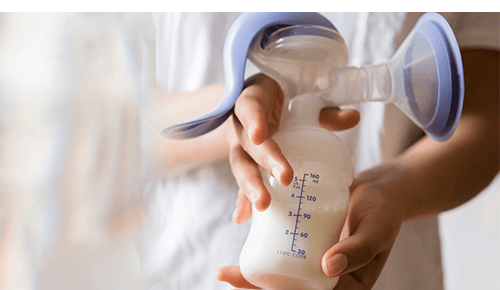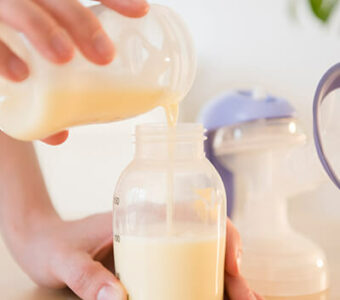Human breast milk is powerful. One ounce of milk will feed three preemies for one day. It’s the only thing known to decrease the risk of necrotizing enterocolitis (NEC) in babies born prematurely, which can be fatal. It contains antibodies that are known to help babies fight off viruses and bacteria.
Why is Donating Important?
Donor breast milk recipients rely solely on donations from breastfeeding mothers with excess milk to give. In 2023, OhioHealth Mothers’ Milk Bank distributed more than 464,000 ounces of donated breast milk to NICUs across Ohio and 8 other states, saving the lives of countless babies.
Marla Wilson, BSN, RN, CLC, Nurse Donor Coordinator at the OhioHealth Mothers’ Milk Bank, explains that our milk bank is unique in that we analyze and label the bottles with the calorie amount. This process helps determine how milk donations are combined to optimize nutrition.
Once the donations are received, the breast milk is pasteurized. This process preserves as much of the antibodies in the milk as possible while killing bacteria and viruses. Breast milk donations are only distributed to recipients who have a prescription. While babies in the NICU always have priority, it can also be distributed to outpatient babies who have a medical need, as the supply allows.
Things to Know Before Donating
There are a few things to keep in mind when thinking about donating.
- The milk bank cannot accept breast milk if the mother smokes or takes blood pressure medication.
- There is a certain waiting period for donations if the mother is taking certain medications. Please discuss what medicines you’re taking and how that affects your donation during your telephone screening.
- Limit caffeine to 24oz a day.
- Limit alcohol use.
- Contact the milk bank before the milk has been stored for six to eight months.
How to Become a Breast Milk Donor
Breastfeeding mothers who are interested in becoming donors must participate in a screening process to ensure the quality and safety of the milk. The process includes a phone screening to verify eligibility, completion of a medical and lifestyle history review, a signed medical release from the donor and physician, and agree to receive a blood test to screen for HIV, HTLV, Hepatitis B, Hepatitis C and syphilis, paid for by OhioHealth Mothers’ Milk Bank.
Once an approved volunteer, breastfeeding mothers may donate their breast milk while repeating their lab work every six months. Breast milk donations can be dropped off at one of 30 locations across Ohio or shipped via FedEx with shipping containers and labels provided by the milk bank.
Mothers who would like to donate in memory of their child after a loss are invited to reach out to the milk bank. The milk bank displays a memory tree with the baby’s first name and date of birth to honor the child and bereavement donation from the mother.
You can apply to be a breast milk donor by calling (614) 566.0630 or sending an email to [email protected]. You can find more information on OhioHealth.com.
OhioHealth Milk Bank is accredited by the Human Milk Banking Association of North America.








